
With spiraling oil prices, crumbling economies, weakened leaders, and intensifying violence in Ukraine and the Middle East, we’re experiencing unusual volatility in markets and geopolitics. Here are five falling numbers that have broad-reaching implications.
1. Down to 1.38%
There’s a huge difference between the current Greek crisis and previous cycles of panic: today bond markets are treating the Greek economy as an isolated patient, swatting away notions of contagion risk to other periphery countries. The numbers tell the story. In the wake of the anti-austerity party Syriza’s victory in Greek elections last month, Spain’s 10-year yield fell to new record-breaking lows, closing at a staggering 1.38% at one point last week. That means Spain can borrow at better rates than the thriving United States. Compare that to Greece’s 10-year yield, which shot above 11% in the days after Syriza took office.
(Source: Eurasia Group, Bloomberg Business: Spain, Greece)
2. -30% Approval
Expectations for Indonesia’s new president Joko Widodo were sky-high when he was elected last summer. (He even graced the cover of this publication in October with the headline “A New Hope.”) But his recent nominee for police chief is a former aide to party powerbroker and ex-president Megawati Sukarnoputri, raising concerns about her influence over the supposedly independent Joko. Just days after the announcement, police chief nominee was named as a suspect in a corruption probe. Joko’s decision to trim fuel subsidies in November was lauded by investors; after all, between 2009 and 2013, Indonesia spent more on such subsidies than it did on social welfare programs and infrastructure put together. But it’s no surprise that a hike in fuel prices didn’t go over as well with the general population. According to an opinion poll by LSI, Joko’s approval rating has dropped 30 points—from 72% in August to just 42% in January.
(Source: Wall Street Journal, The Economist, Financial Times)
3. -$58 per barrel
The price of Venezuelan oil collapsed from $96 in September to $38 last month. That’s not a good thing in a country where oil exports provide more than 95% of foreign exchange. Venezuela needs that hard currency—more than 70% of its consumer goods are imported. Things are getting bleaker. The International Monetary Fund predicts an economic contraction this year of as much as 7% of GDP. Inflation is over 60%. And an economic perk is coming under threat: Venezuelans enjoy the world’s cheapest gasoline, paying the heavily subsidized rate of roughly $0.06 per gallon. This provision costs the government more than $12 billion a year. In a recent speech, President Nicolas Maduro declared, “You can crucify me if you want, but there’s a need for us to go to a balanced price.” Given all the economic woes and the President’s tanking approval ratings, it’s definitely not the easiest time to rake back this subsidy.
(Brookings, New York Times, Wall Street Journal, Bloomberg, International Business Times)
4. -$500,000,000 in military aid
With ISIS rampaging across Iraq and Syria—and Houthi rebels seizing the capital of Yemen and pushing that country into civil war—Saudi Arabia is accelerating its plans to wall itself off from volatile neighbors. In September, the Saudis began construction on a 600-mile wall along the border with Iraq. To the south, they are strengthening fortifications to keep unwanted visitors from breaching the 1,060-mile border with Yemen. Border guards told a CNN correspondent that in just the last three months, they have stopped 42,000 people from crossing a 500-mile section of the border. It’s not just about security—it’s also economic. As of 2013, Saudi citizens represented just 43% of the country’s workers—and only some 15% of the private sector—with the rest consisting of foreign workers. With youth unemployment at around 40% in Yemen, many try to cross in search of work. But even as the spending spree on security continues, the Saudi Kingdom is halting most of its financial aid for Yemen, fearful it could fall into Houthi hands. According to a Yemeni official, the Saudis recently refused to pay $500 million earmarked for military aid.
(Newsweek, Reuters, Bloomberg, CNN, Al Arabiya News, Reuters, Wall Street Journal)
Meet Saudi Arabia’s Special Security Forces
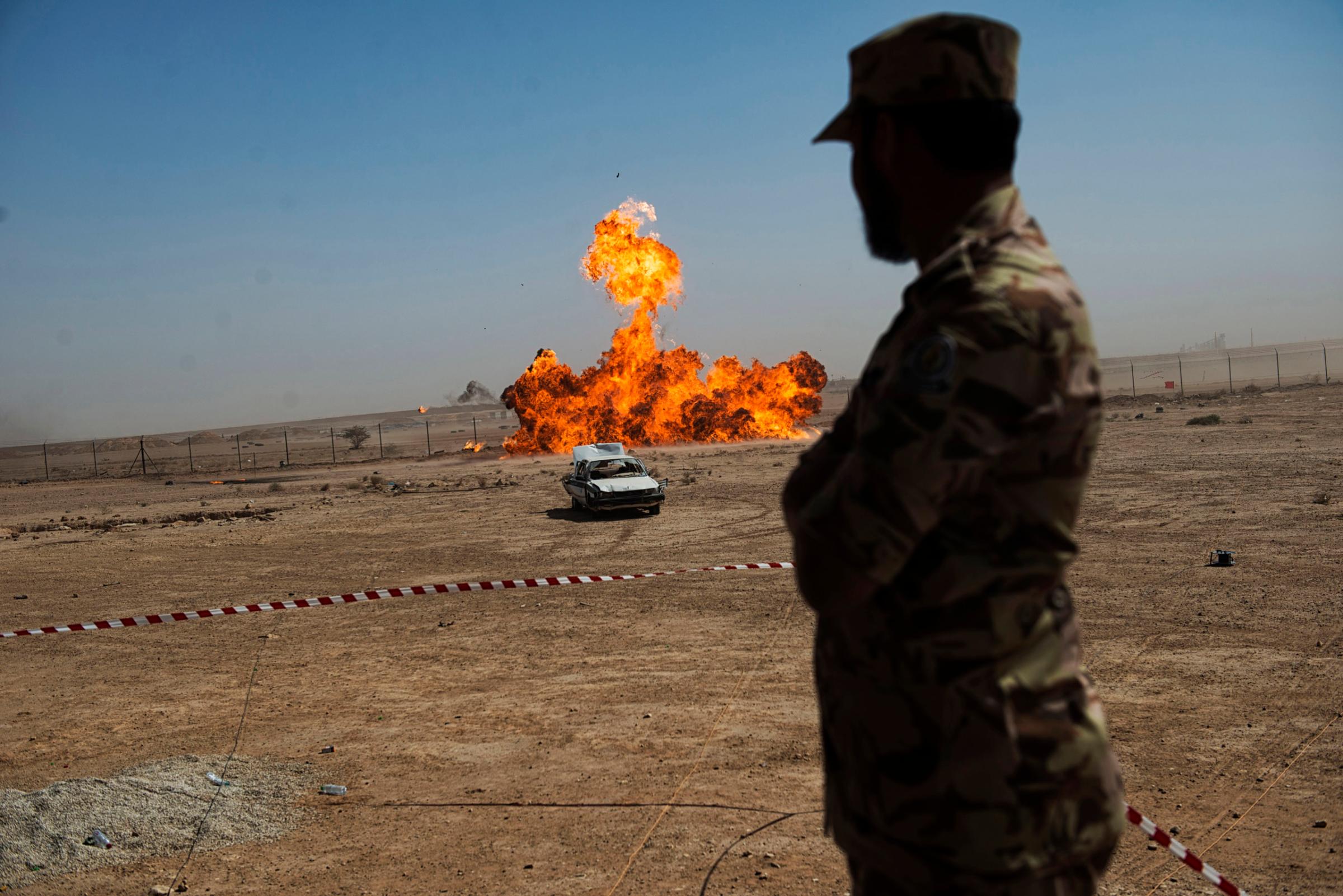
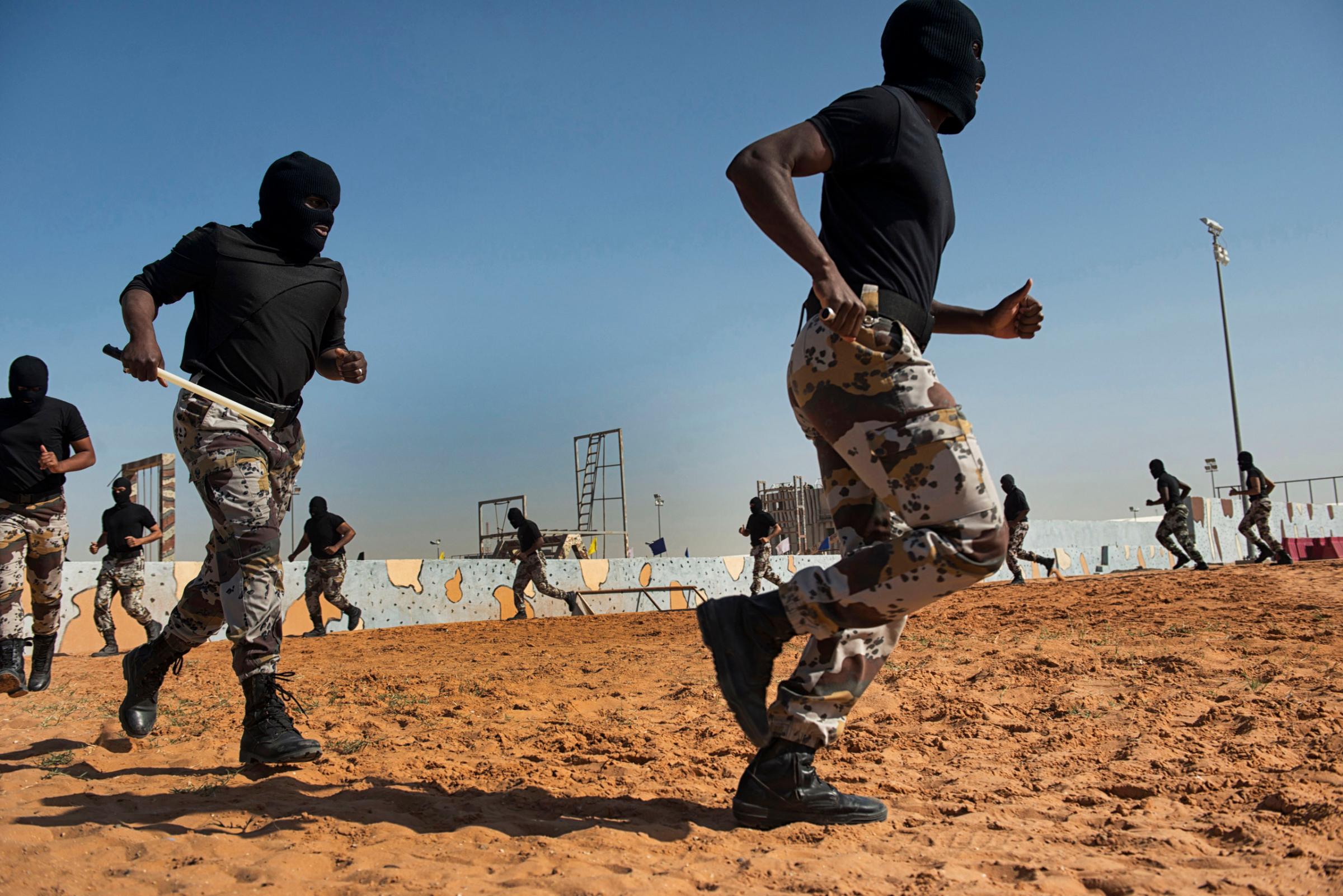
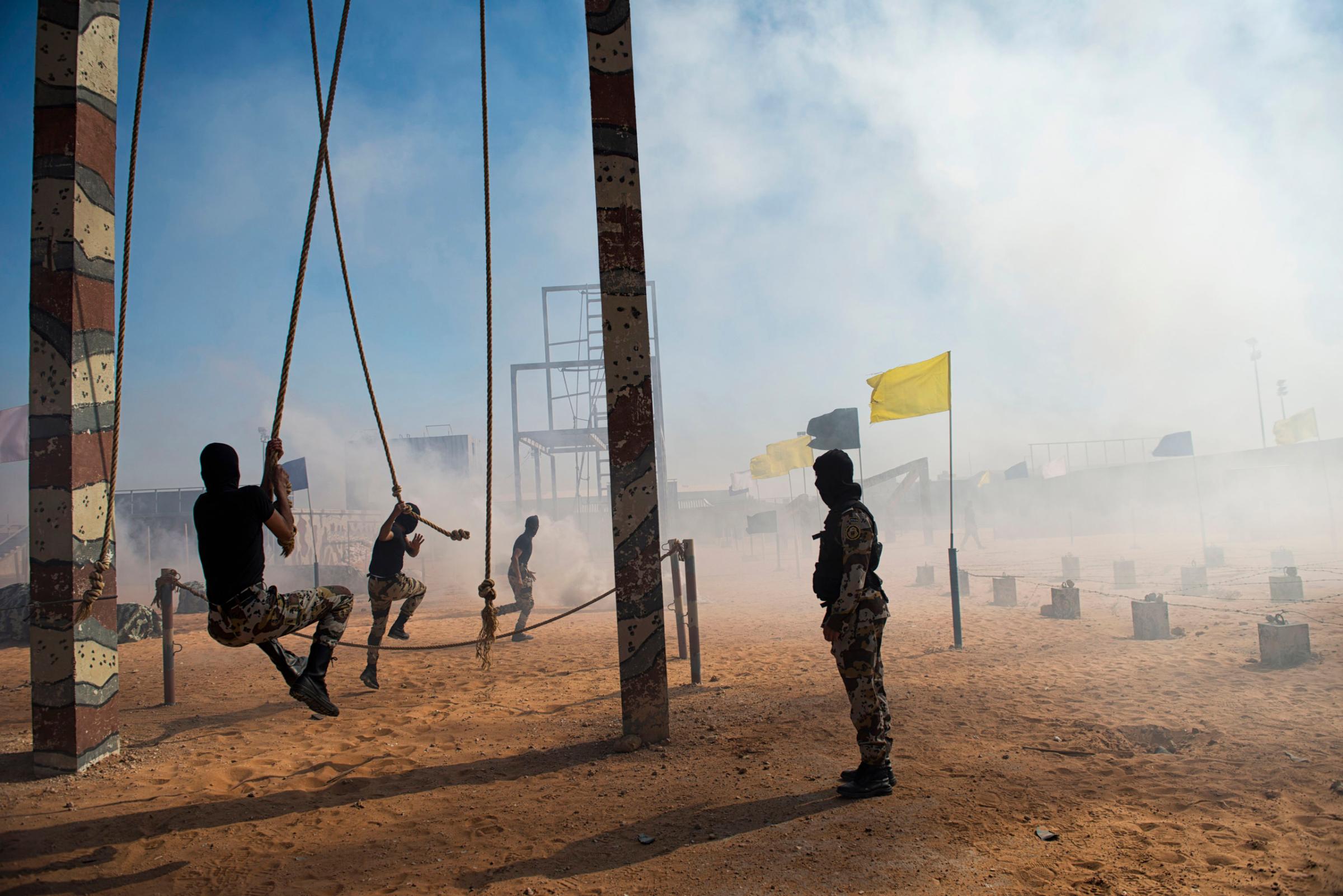
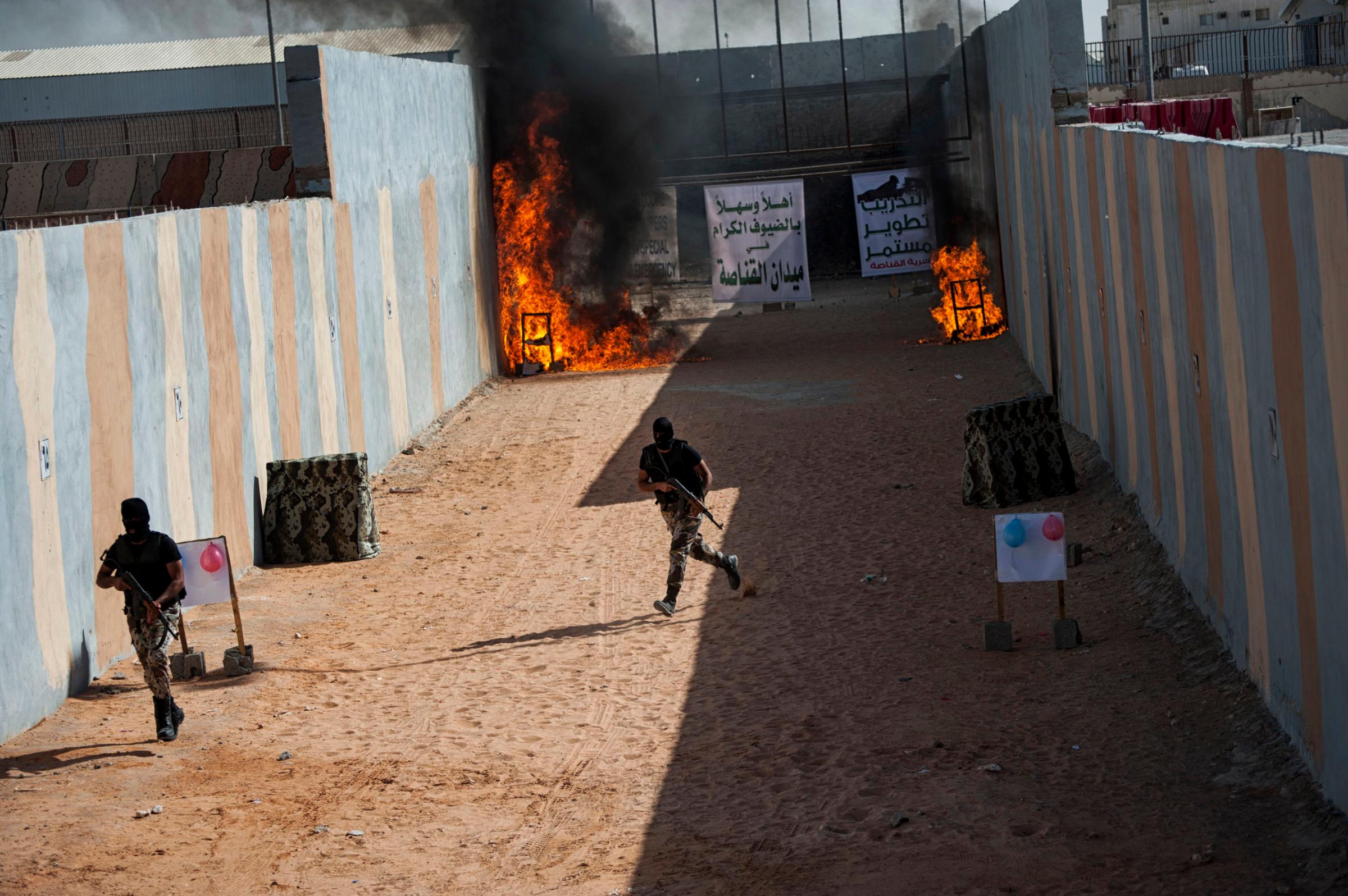
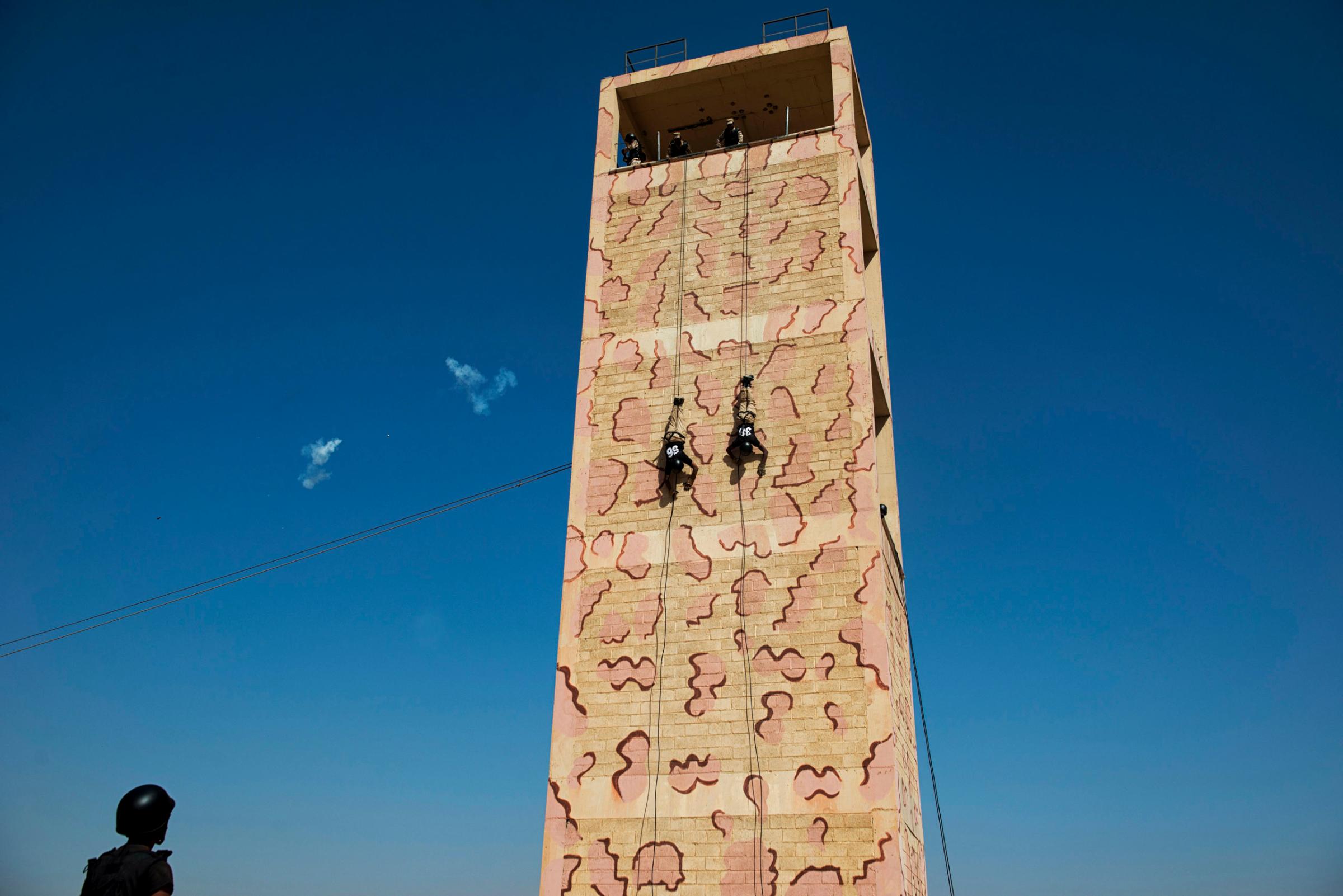
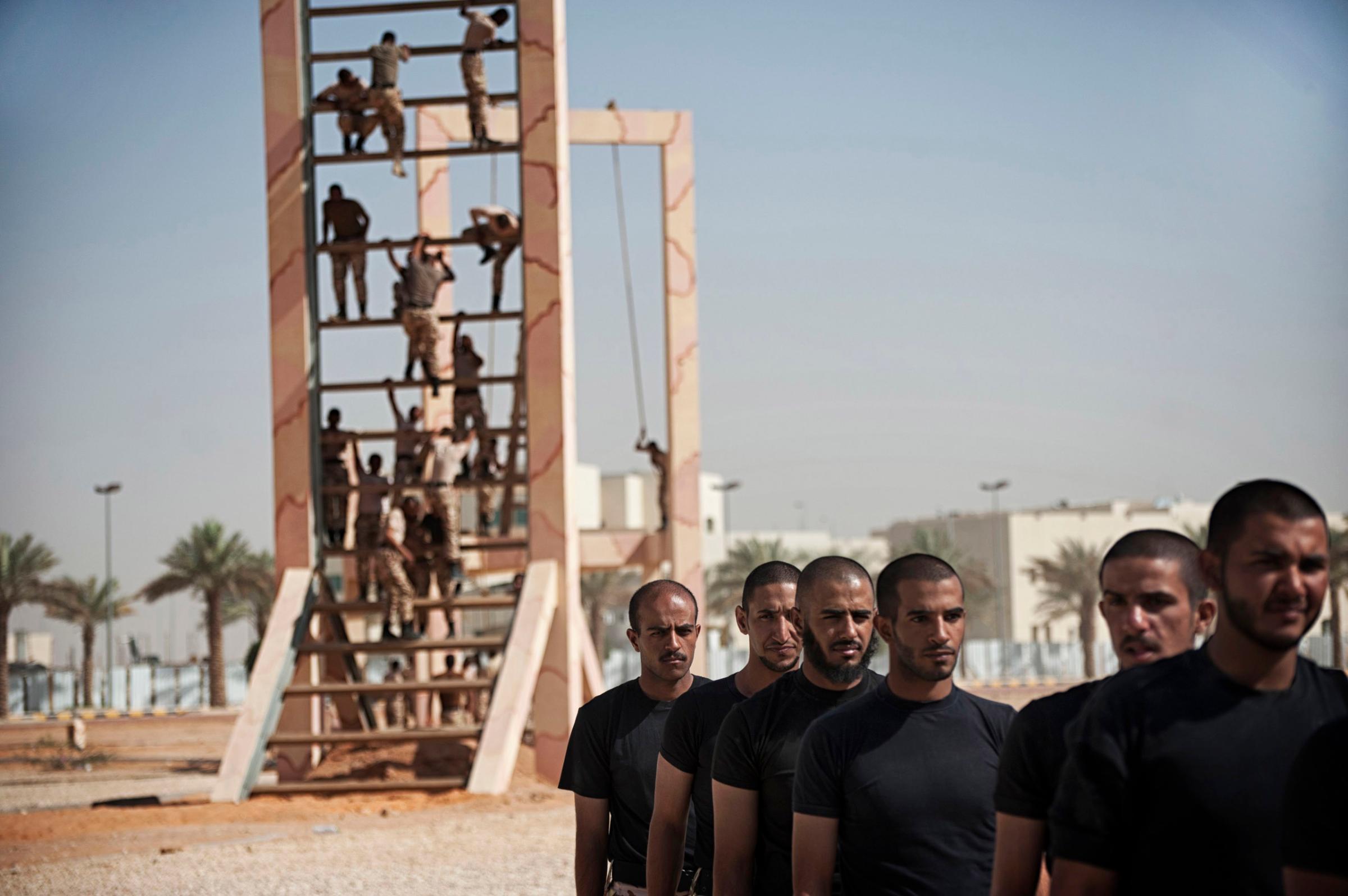
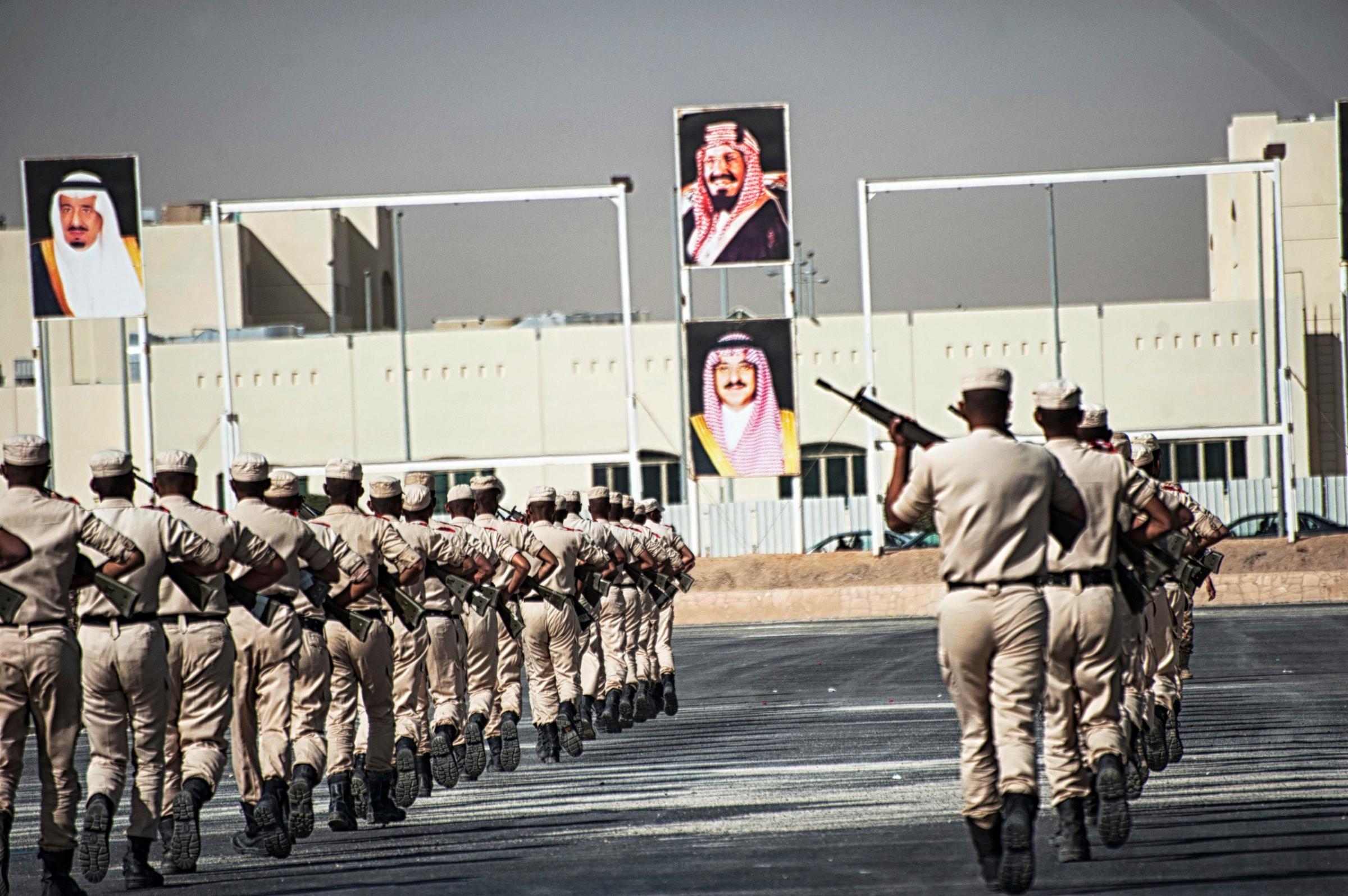
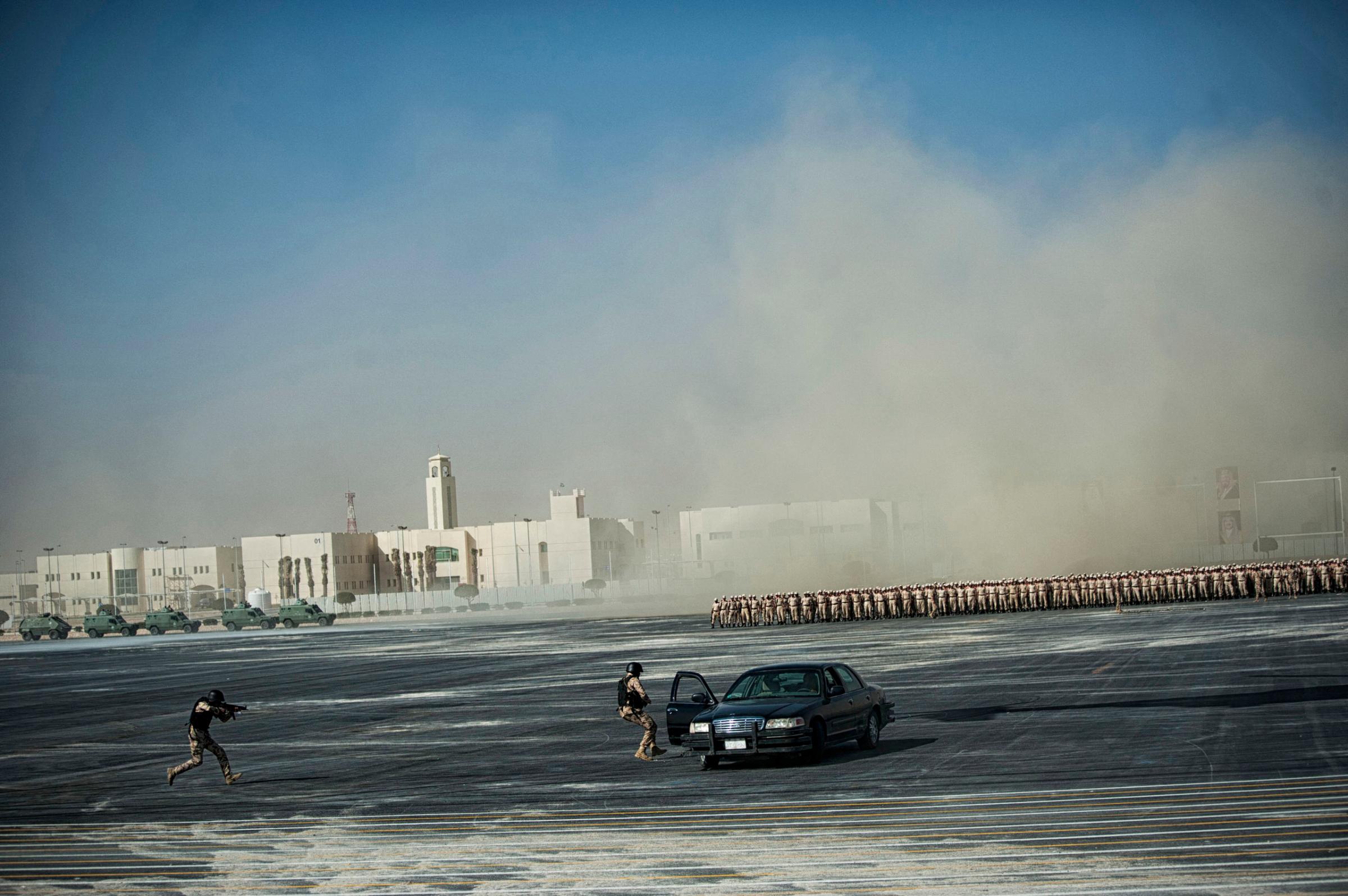
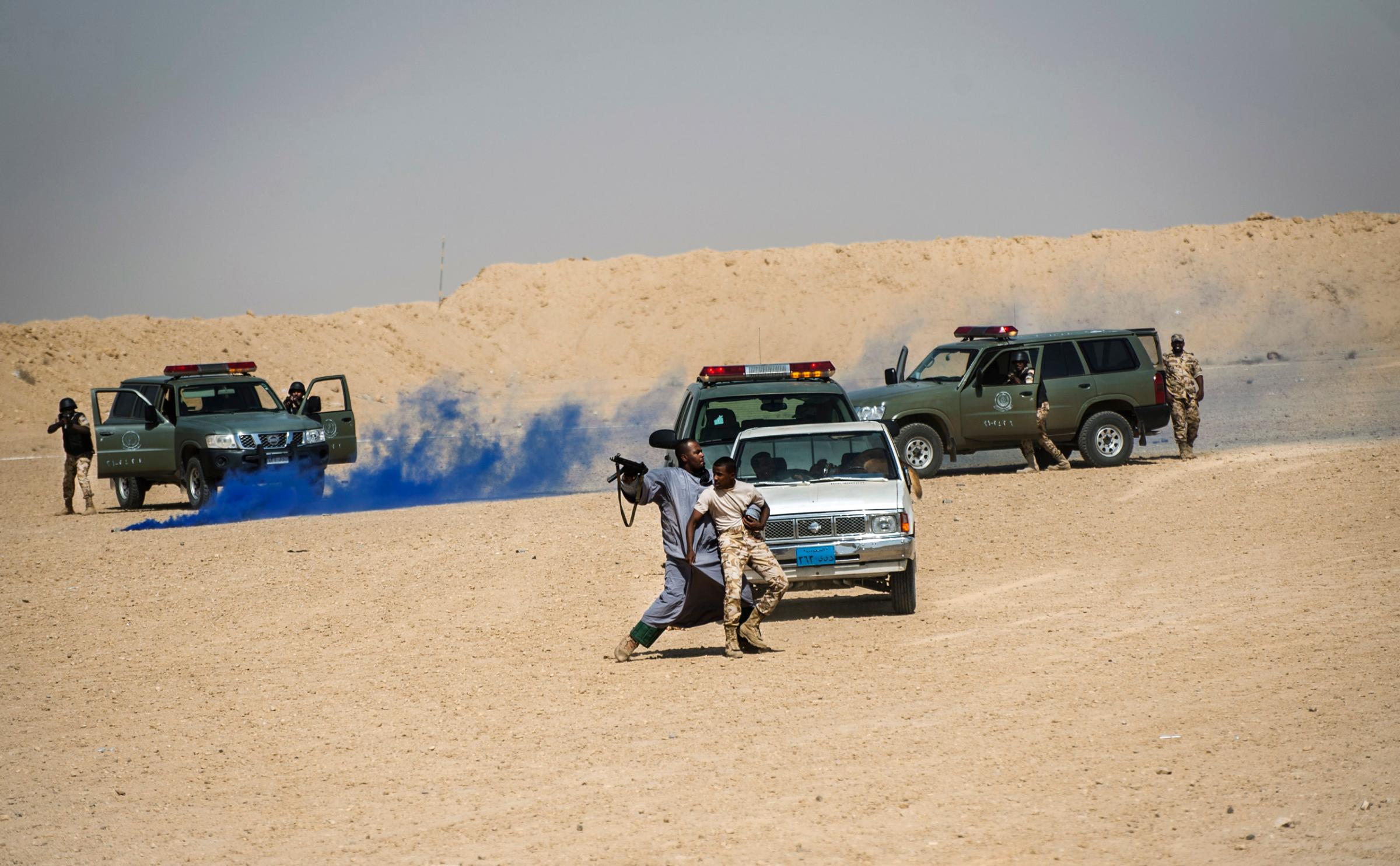
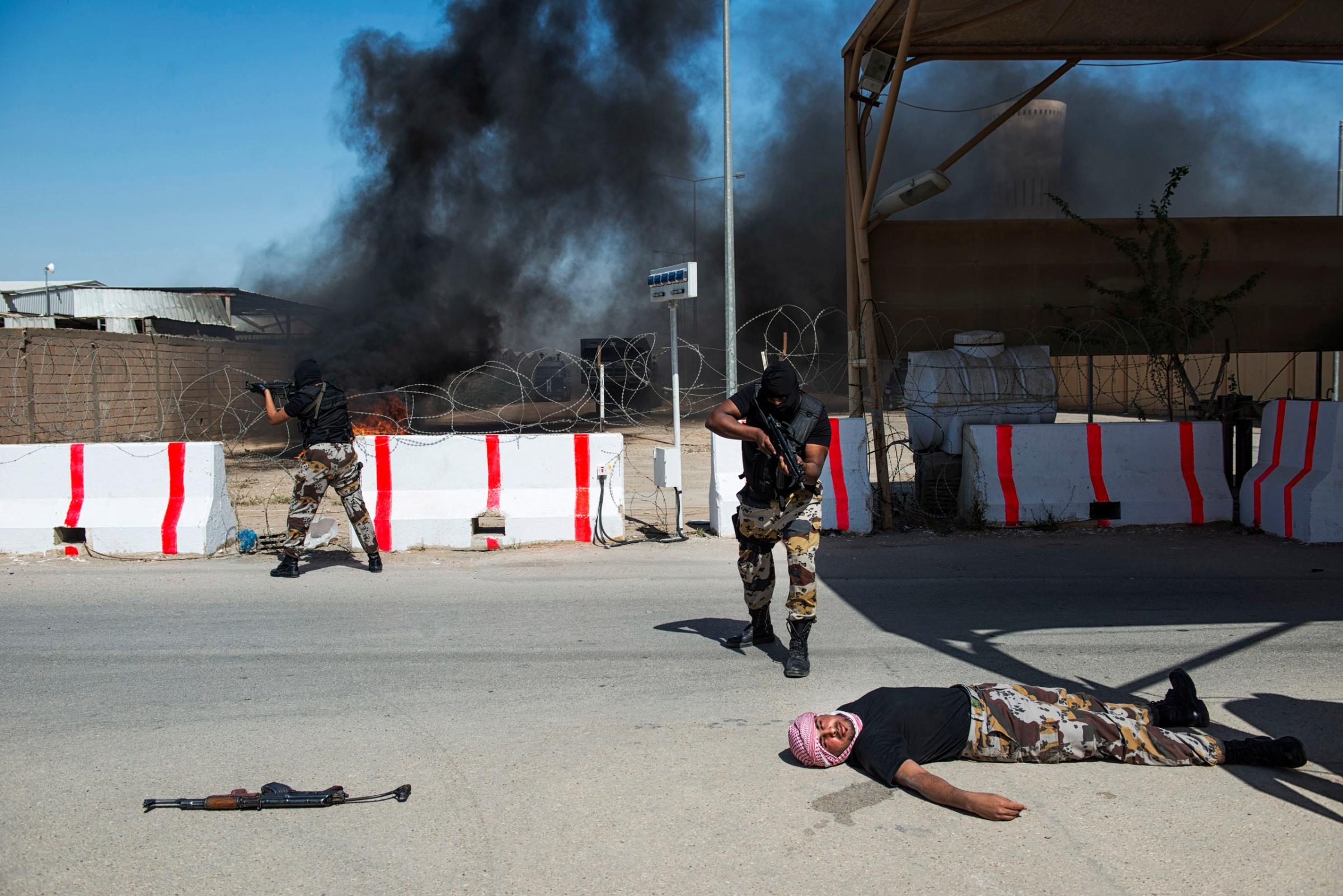
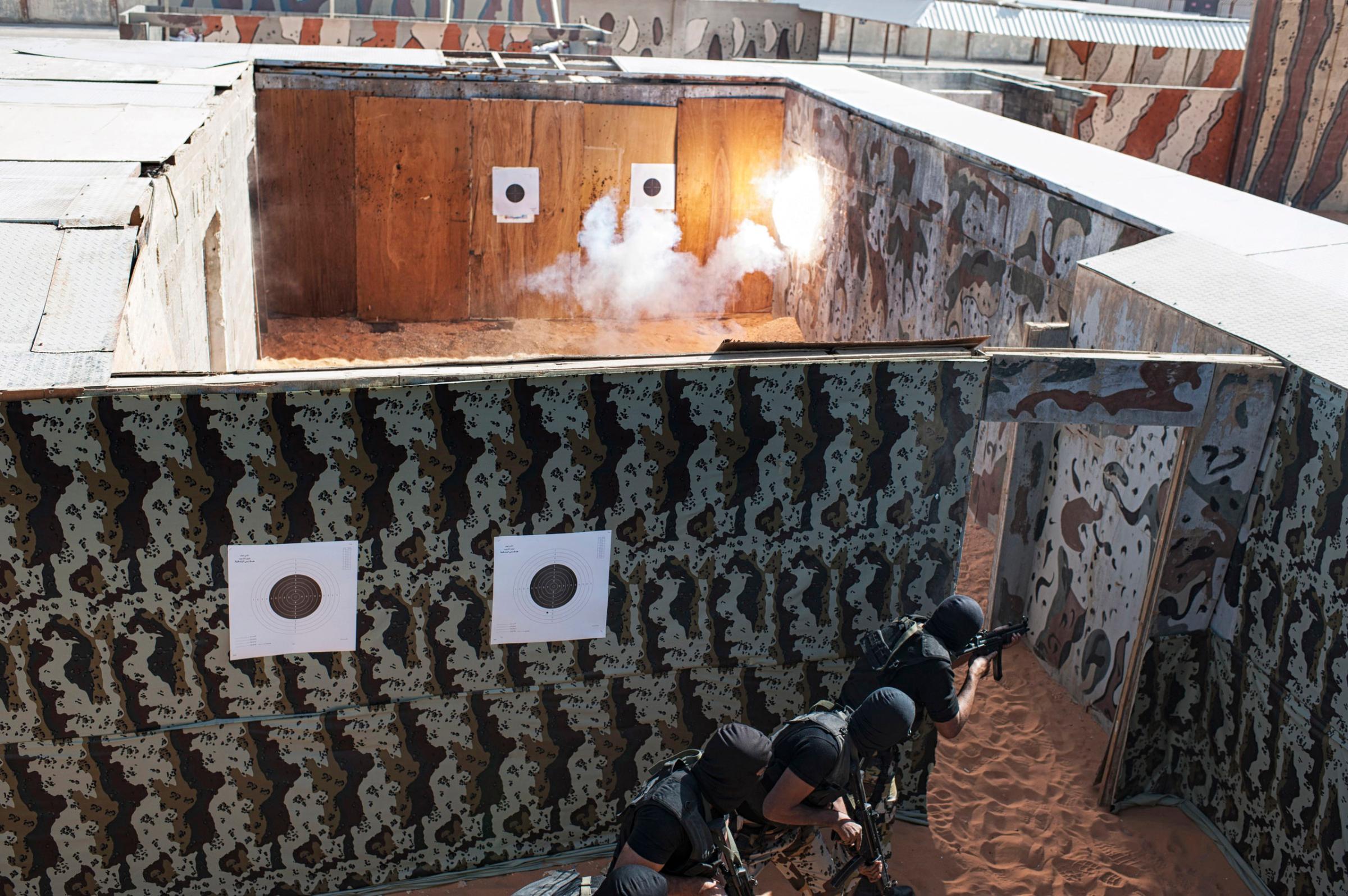
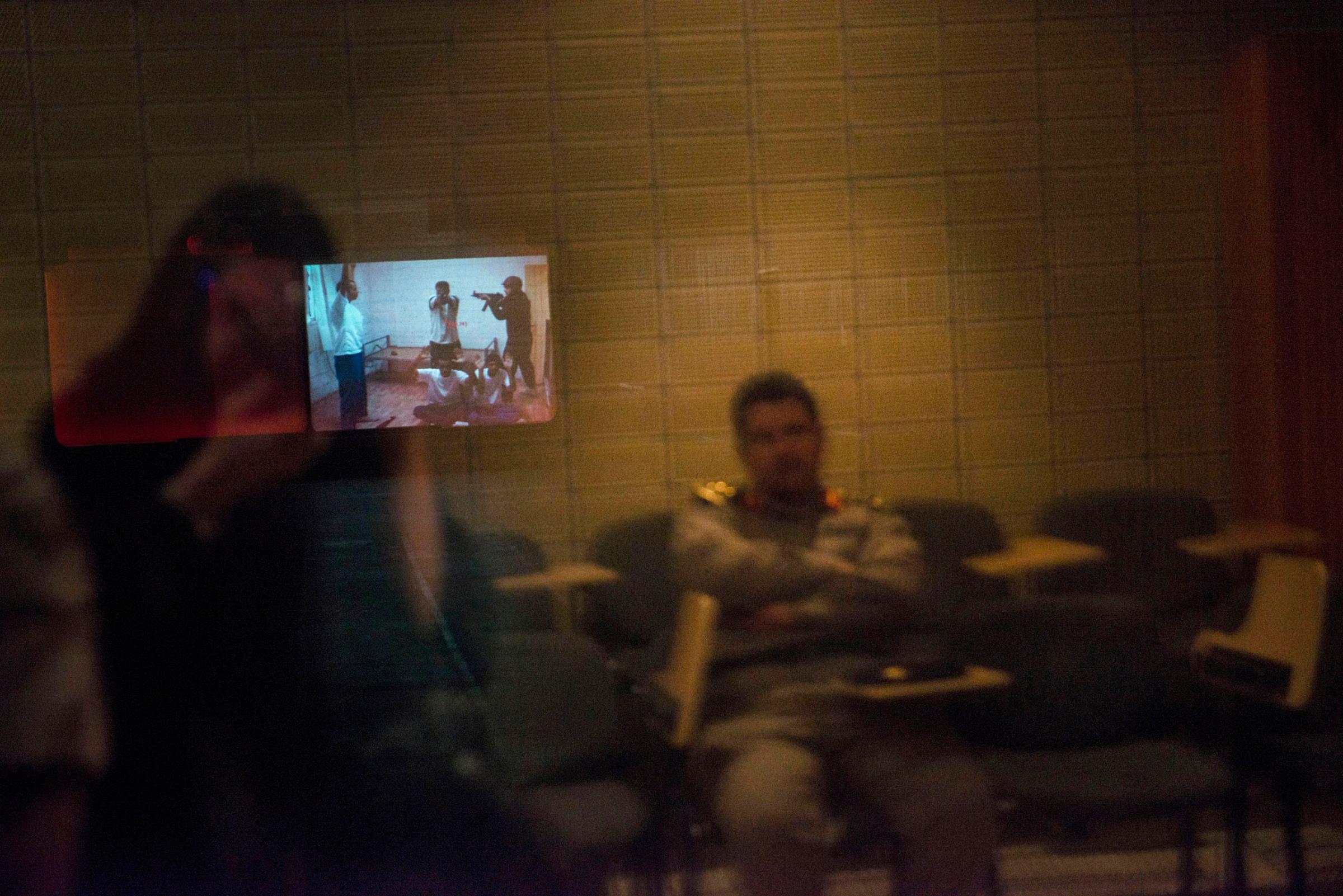
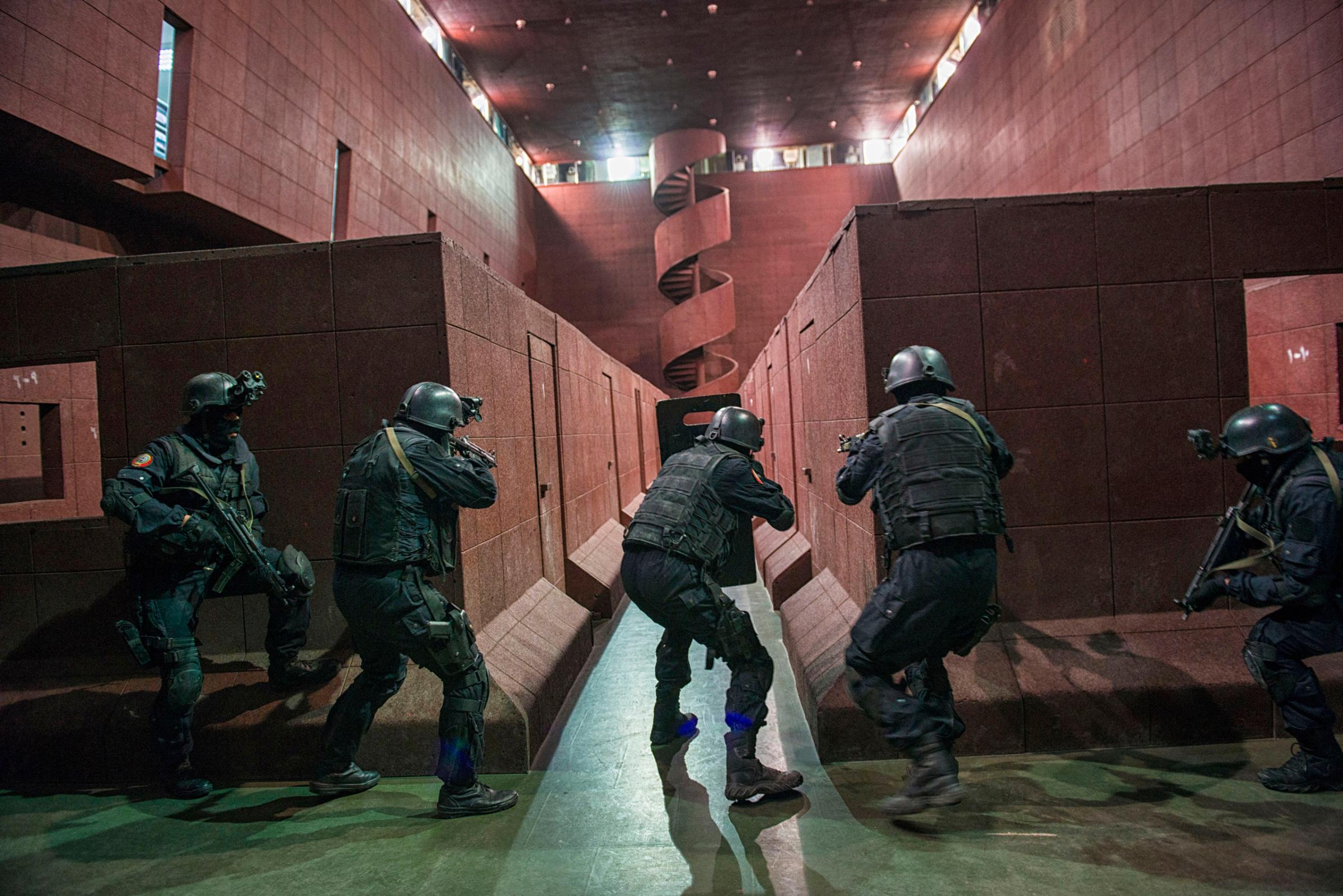
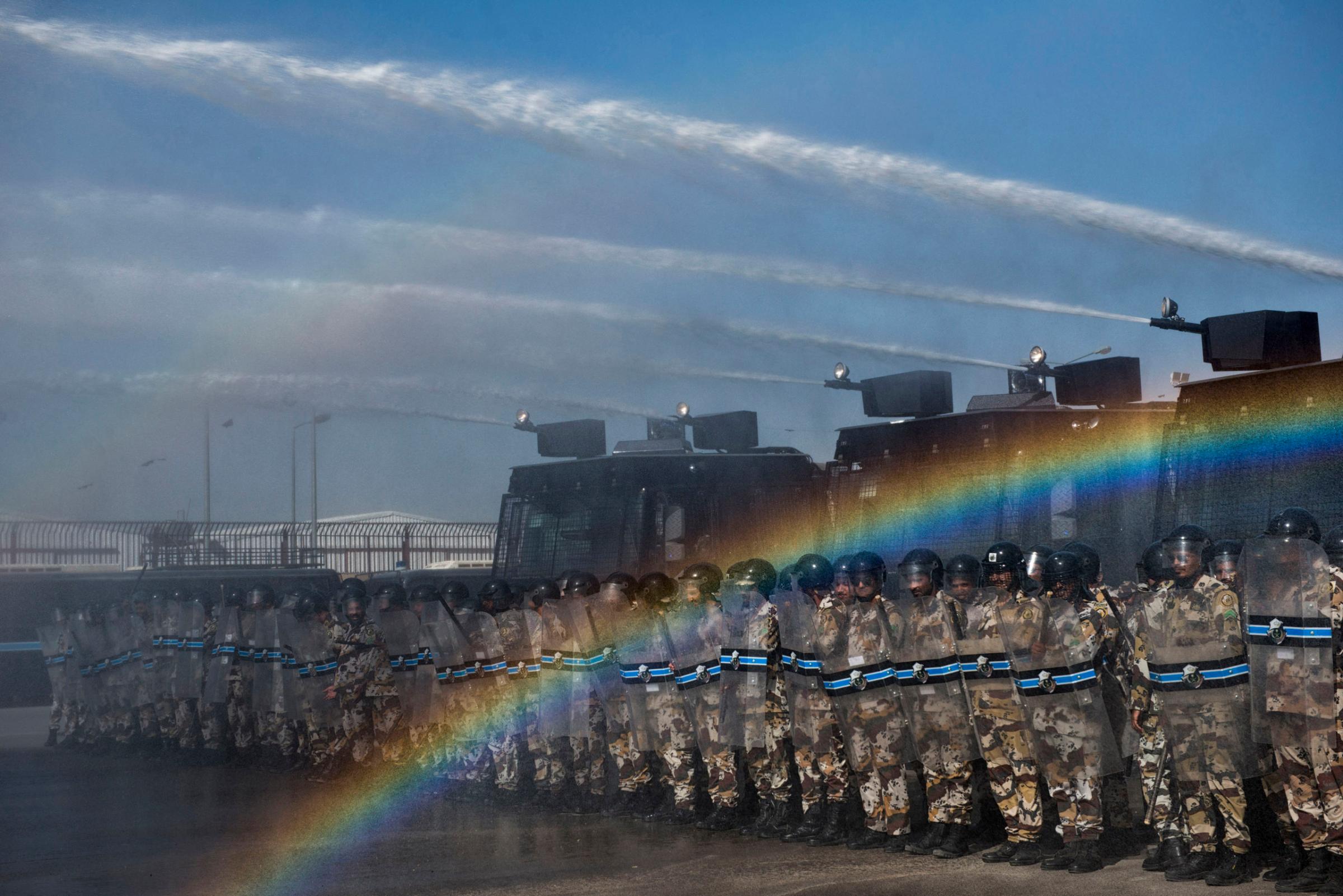
5. -$61,000,000,000 … and -16%
They’re the group of Russians best equipped to weather hard times, but that doesn’t mean they aren’t feeling the burn. In 2014, the 21 wealthiest people in Russia lost a combined $61 billion—a quarter of their net fortune. Those who aren’t losing money are removing it: 2014’s net outflows by companies and banks topped $150 billion. That’s more than double the 2013 figure, and shatters the old record from ’08, amidst the financial crisis. The IMF expects the Russian economy to contract 3.5% in 2015. At least Russians can express their dismay while drinking more affordable liquor: this week, Moscow passed a new measure cutting the minimum price of a bottle of vodka by 16%.
(Reuters, Businessweek, IMF, Washington Post)
More Must-Reads from TIME
- Donald Trump Is TIME's 2024 Person of the Year
- Why We Chose Trump as Person of the Year
- Is Intermittent Fasting Good or Bad for You?
- The 100 Must-Read Books of 2024
- The 20 Best Christmas TV Episodes
- Column: If Optimism Feels Ridiculous Now, Try Hope
- The Future of Climate Action Is Trade Policy
- Merle Bombardieri Is Helping People Make the Baby Decision
Contact us at letters@time.com